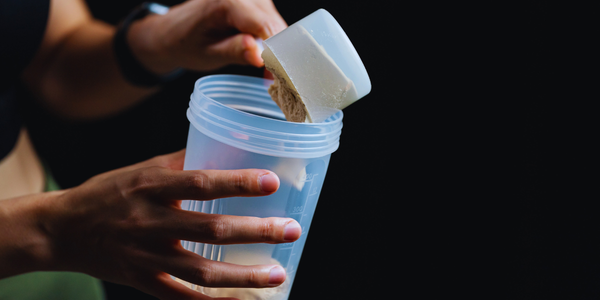The One Thing Most People Get Wrong About Building Muscle, According to Science
Discover the crucial muscle growth secret most fitness enthusiasts overlook. Learn the science-backed approach that can revolutionize your gains and transform your training results

https://www.youtube.com/watch?v=fwnuqViU2Uc
Did you know that adding just two pounds of muscle per month is the max? This fact blows away common myths about muscle growth and strength training techniques. Most folks have unrealistic hopes and use wrong methods, stopping them from reaching their goals.
Muscle building is way more complex than most think. Science shows it's not just about lifting weights and eating protein. The real secret is understanding how our bodies work.
Recent sports science has found key facts that question old bodybuilding ideas. The fat-free mass index (FFMI) shows natural muscle growth has limits. You can't grow muscle endlessly without using drugs.
Key Takeaways
- Muscle growth is limited to approximately 2 pounds per month naturally
- Scientific understanding trumps traditional bodybuilding myths
- Biological constraints play a crucial role in muscle development
- Quality of training matters more than quantity
- Progressive overload is key to sustainable muscle growth
The Science Behind Muscle Growth Secret
Muscle growth is more than just lifting weights. It involves complex biological processes. Knowing how muscle hypertrophy works can change your fitness approach. It helps you build lean muscle mass better.
Understanding Muscle Tissue Development
Muscle growth happens in two main ways: myofibrillar and sarcoplasmic hypertrophy. Myofibrillar hypertrophy boosts strength and speed. Sarcoplasmic hypertrophy increases glycogen storage, improving endurance.
- Muscle fibers experience mechanical tension
- Metabolic stress triggers growth signals
- Micro-damage stimulates muscle repair
The Role of Progressive Overload
Progressive overload is key for muscle growth. Studies show that increasing workout intensity by 2.5-5% helps muscles adapt. Training each muscle group 2-3 times a week is best for growth.
| Training Variable | Recommended Range |
|---|---|
| Repetitions | 6-12 per set |
| Rest Between Sets | 60-90 seconds |
| Weekly Muscle Group Training | 2-3 times |
Hormonal Factors in Muscle Building
Anabolic hormones are vital for muscle growth. Testosterone and growth hormone help build lean muscle. Eating enough protein (1.6-2.2 grams per kilogram of body weight) boosts muscle protein synthesis.
By grasping these scientific basics, you can create better training plans. These plans will help you achieve lasting muscle growth and better fitness.
Common Training Mistakes Sabotaging Your Progress
Building muscle is more than just lifting weights. Many people unknowingly hinder their muscle growth with common training errors. These mistakes can slow down your progress significantly. It's important to know these errors to improve your bodybuilding supplements strategy and reach your fitness goals.
Muscle growth needs more than random workouts. Targeted training approaches can greatly improve your results. Avoiding these basic mistakes is crucial.
- Overtraining: Pushing muscles too hard without enough rest can reduce growth by up to 25%
- Poor Form: Wrong technique increases injury risk and reduces muscle engagement
- Nutrition Gaps: Not enough protein can severely limit muscle development
Protein is key for muscle recovery. Many people don't eat enough protein-rich foods needed for muscle repair. Your bulking diet plans should include lean proteins like chicken, fish, eggs, and legumes to support muscle growth.
Key strategies to maximize muscle development include:
- Follow a structured full-body workout program
- Prioritize proper nutrition
- Allow enough rest between intense training sessions
- Track performance metrics consistently
Bodybuilding supplements can help, but they can't replace a balanced diet and consistent training. About 70% of people struggle with choosing the right weights. This shows the importance of professional guidance and structured training.
Conclusion
Understanding muscle growth is more than just working out. It's about using science and smart training. Supplements can help, but they work best with a solid plan.
Protein is key for muscle repair and growth. Studies show that it's not just about lifting. Elite athletes know it's about the right mix of nutrition and training. A good diet plan is crucial for energy and nutrients.
Muscle growth is complex, involving many factors. It's not just about lifting or following old myths. Using science in your workouts can lead to better results.
Your journey to build muscle is like a science experiment. It's about understanding growth, balancing nutrition, and smart training. The best athletes know how to mix knowledge, discipline, and learning.
FAQ
What is the most critical secret to muscle growth that most people overlook?
The secret to muscle growth is understanding progressive overload and muscle adaptation. It's not just lifting weights. It's about challenging your muscles, recovering well, and optimizing hormones.
How important are hormones in muscle building?
Hormones like testosterone and growth hormone are key for muscle growth. They help with protein synthesis and recovery. Knowing how to boost these hormones through training and nutrition can help a lot.
What are the most common mistakes preventing muscle growth?
Common mistakes include overtraining and neglecting proper form. Not eating enough and relying too much on supplements also hinder growth. It's important to balance protein, rest, and have a structured workout plan.
How much protein do I really need for muscle growth?
You need 1.6 to 2.2 grams of protein per kilogram of body weight for muscle growth. Quality is as important as quantity. Eat complete proteins and spread out your protein intake throughout the day.
Can I build muscle without using supplements?
Yes, you can build muscle without supplements. A balanced diet and strength training are enough. Whole foods offer more benefits than supplements.
How long does it take to see significant muscle growth?
Muscle growth takes time. You'll see changes in 8-12 weeks with consistent training. Genetics, nutrition, rest, and training intensity affect how fast you grow.
What's the most effective workout routine for muscle growth?
The best routine includes compound exercises like squats and bench presses. It should have progressive overload, rest, and periodization. Tailor your routine to your fitness level and goals.
How important is recovery in muscle building?
Recovery is crucial. Muscles grow when you rest, not when you train. Sleep, nutrition, hydration, and rest between workouts are essential for growth and avoiding overtraining.
Source Links
- The 4 truths about building muscle - Concordia University
- The #1 Biggest Muscle-Building Mistake - Burn The Fat Blog
- Muscular Hypertrophy: The Science and Steps for Building Muscle
- The Science Behind Muscle Growth
- The Science of Muscle Hypertrophy: Unveiling the Mechanisms Behind Building
- 8 Ways You're Sabotaging Your Fitness Progress
- 7 mistakes sabotaging your strength training results
- 6 Mistakes That Are Sabotaging Your Muscle Growth
- Unveiling the Muscle Magic: The Science of Muscle Hypertrophy
- This Determines How Much Muscle You’ll Gain from Your Training
ActiveMan — Make Your Move
The Modern Guide to Men’s Health, Fitness & Lifestyle.





